

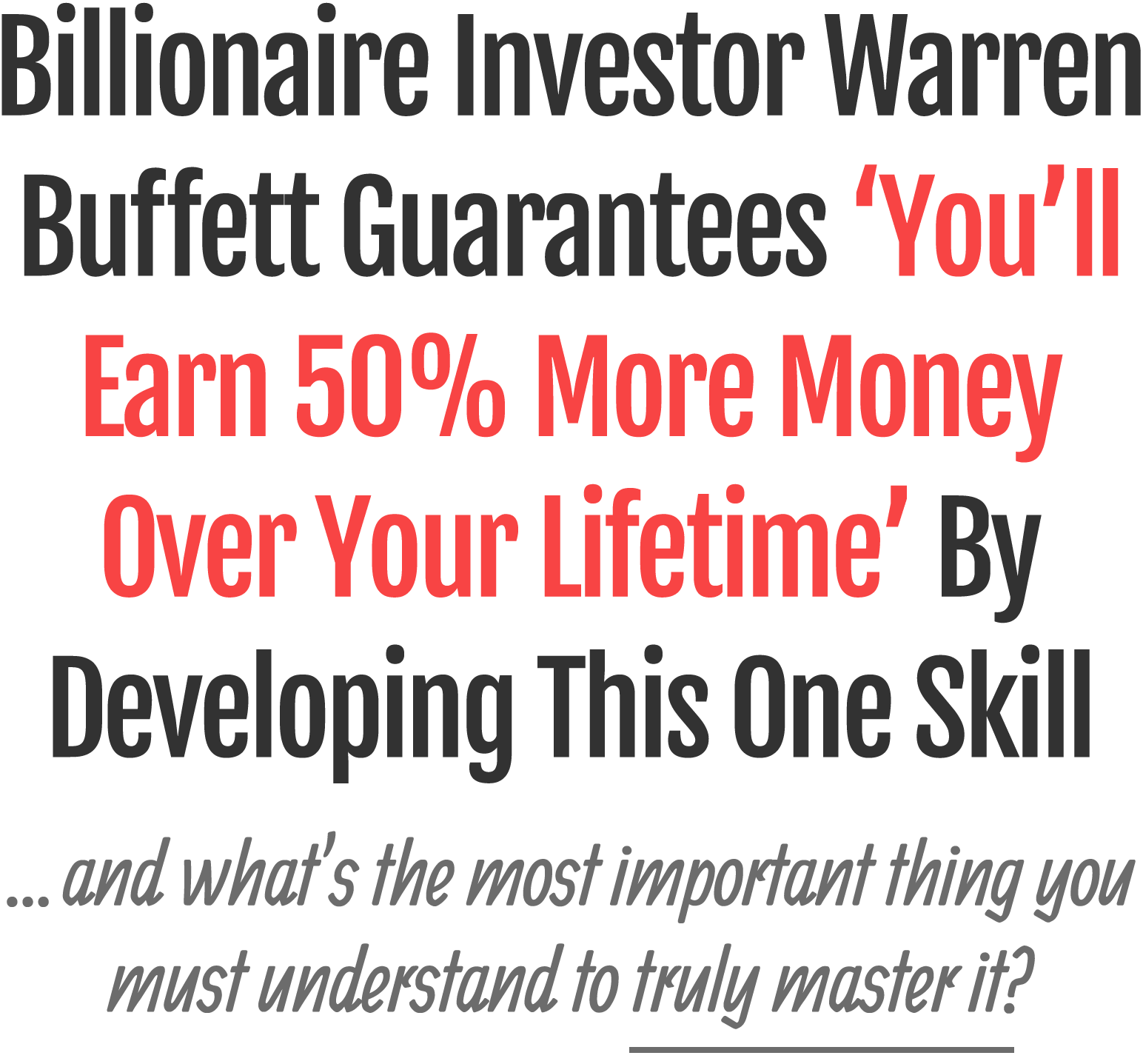
[Press the CC button to view video captions]

Changing minds is hard to do. When our most dearly held opinions -- things like political convictions, religious beliefs, morals, and core principles -- are challenged, our brains put up one hell of a fight to protect them.
Brain scientists have long known that when our deeply held beliefs are called into question, the amygdala (a small, almond-shaped mass of neurons responsible for emotions like fear and anger) kicks into high gear as if we were encountering danger -- leaving us in no mood to consider a difference of opinion.
Yet, people convincing other people to believe things is what makes the world go ’round. Whether you’re giving a presentation, selling a product, angling for a promotion or running for office, the odds are good that your position requires you to influence and persuade people in some capacity.
Well, the same pioneering science that’s recently helped us understand how beliefs are formed has also revealed how we can be much more effective at changing them.
This topic is deep and far-ranging, but when it comes to effective influence and persuasion, perhaps the most important thing I can share with you is this: what you say matters far less than who you are.
Most people think it’s the message -- along with the merits of said message -- that will convince others to change their mind. But that’s almost never the case ...
When it comes to persuading people, your RELATIONSHIP with the audience is by far the most important factor.
This idea is easy enough to grasp. Just consider four simple words: “Will you marry me?” -- perhaps the most powerful question on the planet … when it's delivered by the right person, at the right moment. In any other context, though, it would just be awkward and uncomfortable.
Or, consider the famous author Steven King, who once wrote a series of novels under the fake pen name ‘Richard Bachman’ to find out if it would have a negative impact on sales. The result? Yes … yes it did.

Or, how about wine and the placebo effect. Time after time, studies have shown that wine bottled with a prestigious, well-known label will literally taste better than the same exact wine offered by an unknown company.
What about you? Have you ever been generous enough to share an indisputably great idea/product/sales pitch/piece of content with a ‘cold’ audience who didn’t know or trust you … only to be treated to the sound of crickets?
As digital technology continues reshape our world and demolish existing boundaries of connection and communication, the key to success is no longer based on location, location, location …
Instead, it's all about relationship, relationship, relationship!
And this is good news, because building relationships is a hell of a lot faster, easier and cheaper than buying expensive real estate, battling it out for a corner-office, or simply waiting to get "picked".
This new paradigm puts everyone on a level playing field where we now have the opportunity to pick ourselves. Who knows how long this window will be open, but right now we all have equal access to cheap, easy technology that can connect us with virtually any person (or group of people) on the planet!
This means there’s no longer a great advantage to being large and entrenched -- because in a hyper-connected world, small players have a real opportunity to compete with established entities based solely on the ability to tell a better story, deliver a more personalized message, and reach people on a deeper level.
From business to politics to entertainment, the world is overflowing with remarkable David and Goliath stories made possible by nothing more than this new reality.
So, what does this mean for you?
Simple -- if you want to earn more success, security, recognition, fulfillment, (and yes, money), you must have a rock-solid understanding of who/what you're trying to change, and you'd better get good at communicating this change.
The renowned American entrepreneur and investor Tim Ferriss summed it up well when he said ...

There’s just no way around it. In an age where ideas, information and trust have become the most valuable forms of currency, success is gravitating toward those who know how to leverage these things most effectively.
The importance of developing strong connection skills cannot be overstated -- because nothing happens without it! Communication is the force that gives life to your passions, power to your ideas, and purpose to your knowledge. It's the catalyst that turns mere potential into tangible success.
It's a true "amplifier" skill that serves you in so many rich and immeasurable ways: it sharpens you; builds confidence and power; accelerates your results; and provides a unique sense of security.
Honestly, it might be the best "success secret" there is!
Plus, it's a timeless skill that can never be taken away from you. Most skills can (and will) eventually be rendered valueless -- but strong communication will always be in demand, will always be valued, and will always give you a major advantage over your competition.
And right now, your opportunities to leverage this skill have never been greater ...
There are so many diverse avenues for connecting with people and building relationships (speaking engagements, conferences, webinars, podcasts, YouTube videos, Facebook Live, local networking events, and on and on). The key is simply to choose one that appeals to you, and RUN WITH IT!
Bottom line: If you’re generous enough to consistently show up and share your message -- and you can do it in a way that is proven to be effective -- there’s incredible power for the taking!
P.S. If this idea resonates with you, we have a limited-time opportunity available right now that you might be interested in (more details below).

Changing minds is hard to do. When our most dearly held opinions -- things like political convictions, religious beliefs, morals, and core principles -- are challenged, our brains put up one hell of a fight to protect them.
Brain scientists have long known that when our deeply held beliefs are called into question, the amygdala (a small, almond-shaped mass of neurons responsible for emotions like fear and anger) kicks into high gear as if we were encountering danger -- leaving us in no mood to consider a difference of opinion.
Yet, people convincing other people to believe things is what makes the world go ’round. Whether you’re giving a presentation, selling a product, angling for a promotion or running for office, the odds are good that your position requires you to influence and persuade people in some capacity.
Well, the same pioneering science that’s recently helped us understand how beliefs are formed has also revealed how we can be much more effective at changing them.
This topic is deep and far-ranging, but when it comes to effective influence and persuasion, perhaps the most important thing I can share with you is this: what you say matters far less than who you are.
Most people think it’s the message -- along with the merits of said message -- that will convince others to change their mind. But that’s almost never the case ...
When it comes to persuading people, your RELATIONSHIP with the audience is by far the most important factor.
This idea is easy enough to grasp. Just consider four simple words: “Will you marry me?” -- perhaps the most powerful question on the planet … when it's delivered by the right person, at the right moment. In any other context, though, it would just be awkward and uncomfortable.
Or, consider the famous author Steven King, who once wrote a series of novels under the fake pen name ‘Richard Bachman’ to find out if it would have a negative impact on sales. The result? Yes … yes it did.

Or, how about wine and the placebo effect. Time after time, studies have shown that wine bottled with a prestigious, well-known label will literally taste better than the same exact wine offered by an unknown company.
What about you? Have you ever been generous enough to share an indisputably great idea/product/sales pitch/piece of content with a ‘cold’ audience who didn’t know or trust you … only to be treated to the sound of crickets?
As digital technology continues reshape our world and demolish existing boundaries of connection and communication, the key to success is no longer based on location, location, location …
Instead, it's all about relationship, relationship, relationship!
And this is good news, because building relationships is a hell of a lot faster, easier and cheaper than buying expensive real estate, battling it out for a corner-office, or simply waiting to get "picked".
This new paradigm puts everyone on a level playing field where we now have the opportunity to pick ourselves. Who knows how long this window will be open, but right now we all have equal access to cheap, easy technology that can connect us with virtually any person (or group of people) on the planet!
This means there’s no longer a great advantage to being large and entrenched -- because in a hyper-connected world, small players have a real opportunity to compete with established entities based solely on the ability to tell a better story, deliver a more personalized message, and reach people on a deeper level.
From business to politics to entertainment, the world is overflowing with remarkable David and Goliath stories made possible by nothing more than this new reality.
So, what does this mean for you?
Simple -- if you want to earn more success, security, recognition, fulfillment, (and yes, money), you must have a rock-solid understanding of who/what you're trying to change, and you'd better get good at communicating this change.
The renowned American entrepreneur and investor Tim Ferriss summed it up well when he said ...

There’s just no way around it. In an age where ideas, information and trust have become the most valuable forms of currency, success is gravitating toward those who know how to leverage these things most effectively.
The importance of developing strong connection skills cannot be overstated -- because nothing happens without it! Communication is the force that gives life to your passions, power to your ideas, and purpose to your knowledge. It's the catalyst that turns mere potential into tangible success.
It's a true "amplifier" skill that serves you in so many rich and immeasurable ways: it sharpens you; builds confidence and power; accelerates your results; and provides a unique sense of security.
Honestly, it might be the best "success secret" there is!
Plus, it's a timeless skill that can never be taken away from you. Most skills can (and will) eventually be rendered valueless -- but strong communication will always be in demand, will always be valued, and will always give you a major advantage over your competition.
And right now, your opportunities to leverage this skill have never been greater ...
There are so many diverse avenues for connecting with people and building relationships (speaking engagements, conferences, webinars, podcasts, YouTube videos, Facebook Live, local networking events, and on and on). The key is simply to choose one that appeals to you, and RUN WITH IT!
Bottom line: If you’re generous enough to consistently show up and share your message -- and you can do it in a way that is proven to be effective -- there’s incredible power for the taking!
P.S. If this idea resonates with you, we have a limited-time opportunity available right now that you might be interested in (more details below).

I just talked at length about why relationships trump message every time -- and, since you’ve probably never heard of me, I expect you might be thinking, “Who the hell is this guy, and why should I care about what he has to say?”.
So, let me share a quick CliffsNotes version of my background so you know a bit about who I am and where I’m coming from …
For me, it all started in in the thin mountain air of Denver, Colorado. I was brought-up by some well-meaning (but tragically flawed) parents who, for better or worse, didn’t adopt a very unified approach to parenting. When my father wasn’t busy working, he spent most of his time traveling to Las Vegas or carousing with my older brother at the local sports bars. So, I was raised mostly by my mother.
Now, my poor mom wasn’t dealt the best hand during her own childhood, and as a result she often struggled to be ‘emotionally available’ as a parent. But still, I always knew she wanted the best for me.
Growing up, my mother was endlessly fascinated by the theatre -- even though she didn’t have any personal experience with it …
So, from a young age, I was pushed hard in that direction.
Fast forward to my early-20’s: I had just graduated from Southern Cal with a film degree, and was now mired in the tar-pits of Hollywood struggling to be the next Brad Pitt.
At this point my parents had divorced each other, and were mostly consumed with their new love interests. Meanwhile, my brother was off squandering his time somewhere in a dusky Arizona poker room. So, for all intents and purposes, I was going-it alone.
I toiled away in Tinseltown for a few years, and occasionally I’d land a middling role on a cable TV show or a B-grade movie (you can check out my paltry IMDb page -- but it’s nothing I’m proud of, and I won’t be offended if you don’t 😉). For a while, I even carved out a nice little niche for myself playing religious figures on various History Channel documentaries ...
But, to be honest, times were tough. I found myself making a lot of compromises and settling for projects that weren’t necessarily consistent with my values just to cover rent each month.
Anyway, I really wanted to succeed, and I gave it my full effort -- but eventually I had to accept that I probably wasn't good enough, and that my ‘big break’ would likely never arrive. It all came to a head for me when I became overwhelmed with my dead-end situation and I broke down emotionally ...
I started having bouts of depression, and even experienced a few episodes of tunnel vision (which, if you’re unfamiliar, is a pretty scary sensation where you lose your peripheral vision). I was mentally deflated, hopelessly lost, and wholly disillusioned by the poisonous culture of Los Angeles.
So, it was at that point that I decided to stop chasing my mother’s empty dream, and I resolved to choose a new path instead. I wanted to do something that I felt would be rewarding and personally fulfilling ...
For me, that meant becoming a teacher!
For the next few years, I worked at several high schools along the West Coast teaching varied subjects and running test-prep courses -- and I loved it! It was immensely gratifying to connect with these young-adults on a deep, meaningful level and watch as the proverbial light bulbs went off in their heads. I was totally hooked!
It'll come as no surprise to those in the ed space, but I suppose the only issue I had with my new position was accepting the overbearing bureaucracy that permeated the culture. Even as a newbie, I could see that most teachers felt hamstrung when it came to doing their jobs with any sense of freedom or agency. They wanted to make a bigger impact … but they generally didn’t know what to do.

At the same time, the brain was emerging as a sexy, new buzzword in the world of education. The schools I worked at would often be approached by slick companies pitching ‘neuro-based’ products with grand promises of enhanced learning and better student outcomes.
The entire staff would always get swept-up at the mere thought of a magic cure-all that could fix all our teaching ills. But inevitably, the sales reps would arrive, and we'd quickly discover they were offering nothing more than false-hype and scientific jargon; mere charlatans trying to capitalize on a new opportunity.
But still, I knew there was something there ...
Neuroscience was in its infancy, but people were hungry for a better solution ... and I could sense this emerging domain had the potential to change the world by transforming our capacity to teach, persuade and influence -- and not just for teachers, but for anyone who wanted to share a message, tell a story and connect with people on a deeper level.
To me, the ‘neuro’ space was full of promise and excitement -- it just needed an interpreter; a translator; a person who could demystify the complex (and often worthless) science and turn it into something practical and useful for everyone ...
And at that moment my life's mission became clear: I was going to be that person!
To make a long story short, I devoted the next ten years of my life to immersing myself in this vastly interesting field. I moved to Boston, earned my Master’s degree at Harvard University, worked under one of the world’s leading experts in noninvasive brain stimulation, and spent years getting my hands dirty in the lab.
Later -- after I fell in love with an Australian ‘sheila’ traveling abroad -- I followed her down-under and earned my PhD in Cognitive Neuroscience at the University of Melbourne … during which I had the privileged opportunity of work alongside John Hattie, a global pioneer in the science of learning.
Jump forward to today, and I still reside in Melbourne with my (now) lovely wife, where I’ve officially assumed my position as the world’s premier ‘neuroscience translator’ ;)

When I’m not in the classroom teaching, I spend most of my time travelling around the globe delivering lectures on varied topics including learning, influence, storytelling and presenting. It’s tireless work, but I remain extremely passionate about this field, and I take great pleasure in teaching professionals about the brain and revealing the fascinating success secrets it holds.
I recognize the impact I can make is limited by time and space (I can only deliver so many lectures in person), so recently I’ve committed myself to writing more, appearing on more podcasts, and building-out digital versions of my most popular courses so I can reach more people and spread my message farther and wider.
In fact, I created this page because I’m putting the finishing touches on an updated and expanded version of one of my favorite courses called “The Neuroscience of Presenting” ... and I'm looking for some volunteers to go through it and provide feedback before we re-release it at the full price.
If you're interested in this opportunity, you can submit a quick application below. It’s a great course, and I know you’ll take away a ton of value from it!

I just talked at length about why relationships trump message every time -- and, since you’ve probably never heard of me, I expect you might be thinking, “Who the hell is this guy, and why should I care about what he has to say?”.
So, let me share a quick CliffsNotes version of my background so you know a bit about who I am and where I’m coming from …
For me, it all started in in the thin mountain air of Denver, Colorado. I was brought-up by some well-meaning (but tragically flawed) parents who, for better or worse, didn’t adopt a very unified approach to parenting. When my father wasn’t busy working, he spent most of his time traveling to Las Vegas or carousing with my older brother at the local sports bars. So, I was raised mostly by my mother.
Now, my poor mom wasn’t dealt the best hand during her own childhood, and as a result she often struggled to be ‘emotionally available’ as a parent. But still, I always knew she wanted the best for me.
Growing up, my mother was endlessly fascinated by the theatre -- even though she didn’t have any personal experience with it …
So, from a young age, I was pushed hard in that direction.
Fast forward to my early-20’s: I had just graduated from Southern Cal with a film degree, and was now mired in the tar-pits of Hollywood struggling to be the next Brad Pitt.
At this point my parents had divorced each other, and were mostly consumed with their new love interests. Meanwhile, my brother was off squandering his time somewhere in a dusky Arizona poker room. So, for all intents and purposes, I was going-it alone.
I toiled away in Tinseltown for a few years, and occasionally I’d land a middling role on a cable TV show or a B-grade movie (you can check out my paltry IMDb page -- but it’s nothing I’m proud of, and I won’t be offended if you don’t 😉). For a while, I even carved out a nice little niche for myself playing religious figures on various History Channel documentaries ...
But, to be honest, times were tough. I found myself making a lot of compromises and settling for projects that weren’t necessarily consistent with my values just to cover rent each month.
Anyway, I really wanted to succeed, and I gave it my full effort -- but eventually I had to accept that I probably wasn't good enough, and that my ‘big break’ would likely never arrive. It all came to a head for me when I became overwhelmed with my dead-end situation and I broke down emotionally ...
I started having bouts of depression, and even experienced a few episodes of tunnel vision (which, if you’re unfamiliar, is a pretty scary sensation where you lose your peripheral vision). I was mentally deflated, hopelessly lost, and wholly disillusioned by the poisonous culture of Los Angeles.
So, it was at that point that I decided to stop chasing my mother’s empty dream, and I resolved to choose a new path instead. I wanted to do something that I felt would be rewarding and personally fulfilling ...
For me, that meant becoming a teacher!
For the next few years, I worked at several high schools along the West Coast teaching varied subjects and running test-prep courses -- and I loved it! It was immensely gratifying to connect with these young-adults on a deep, meaningful level and watch as the proverbial light bulbs went off in their heads. I was totally hooked!
It'll come as no surprise to those in the ed space, but I suppose the only issue I had with my new position was accepting the overbearing bureaucracy that permeated the culture. Even as a newbie, I could see that most teachers felt hamstrung when it came to doing their jobs with any sense of freedom or agency. They wanted to make a bigger impact … but they generally didn’t know what to do.

At the same time, the brain was emerging as a sexy, new buzzword in the world of education. The schools I worked at would often be approached by slick companies pitching ‘neuro-based’ products with grand promises of enhanced learning and better student outcomes.
The entire staff would always get swept-up at the mere thought of a magic cure-all that could fix all our teaching ills. But inevitably, the sales reps would arrive, and we'd quickly discover they were offering nothing more than false-hype and scientific jargon; mere charlatans trying to capitalize on a new opportunity.
But still, I knew there was something there ...
Neuroscience was in its infancy, but people were hungry for a better solution ... and I could sense this emerging domain had the potential to change the world by transforming our capacity to teach, persuade and influence -- and not just for teachers, but for anyone who wanted to share a message, tell a story and connect with people on a deeper level.
To me, the ‘neuro’ space was full of promise and excitement -- it just needed an interpreter; a translator; a person who could demystify the complex (and often worthless) science and turn it into something practical and useful for everyone ...
And at that moment my life's mission became clear: I was going to be that person!
To make a long story short, I devoted the next ten years of my life to immersing myself in this vastly interesting field. I moved to Boston, earned my Master’s degree at Harvard University, worked under one of the world’s leading experts in noninvasive brain stimulation, and spent years getting my hands dirty in the lab.
Later -- after I fell in love with an Australian ‘sheila’ traveling abroad -- I followed her down-under and earned my PhD in Cognitive Neuroscience at the University of Melbourne … during which I had the privileged opportunity of work alongside John Hattie, a global pioneer in the science of learning.
Jump forward to today, and I still reside in Melbourne with my (now) lovely wife, where I’ve officially assumed my position as the world’s premier ‘neuroscience translator’ ;)

When I’m not in the classroom teaching, I spend most of my time travelling around the globe delivering lectures on varied topics including learning, influence, storytelling and presenting. It’s tireless work, but I remain extremely passionate about this field, and I take great pleasure in teaching professionals about the brain and revealing the fascinating success secrets it holds.
I recognize the impact I can make is limited by time and space (I can only deliver so many lectures in person), so recently I’ve committed myself to writing more, appearing on more podcasts, and building-out digital versions of my most popular courses so I can reach more people and spread my message farther and wider.
In fact, I created this page because I’m putting the finishing touches on an updated and expanded version of one of my favorite courses called “The Neuroscience of Presenting” ... and I'm looking for some volunteers to go through it and provide feedback before we re-release it at the full price.
If you're interested in this opportunity, you can submit a quick application below. It’s a great course, and I know you’ll take away a ton of value from it!

We're putting the finishing touches on an expanded version of our popular course "The Neuroscience of Presenting", and we're looking for a handful of people to go through it and provide feedback before we re-release it to the public.

If you're interested in this opportunity, just click below to fill our a quick application (it'll just take a minute or two) ... and then we will let you know in a few days if you've been accepted.
And -- because we don't want anyone to leave empty-handed -- if you submit an application, we'll send you your choice of one of our three best-selling products ($147-267 value) FOR FREE ...

It's a no-brainer offer, and we hope you take us up on it. Just click the button below to access the application form while it's still open ...

We're putting the finishing touches on an expanded version of our popular course "The Neuroscience of Presenting", and we're looking for a handful of serious people to go through it and provide feedback before we re-release it to the public.

If you're interested in this opportunity, just click below to fill our a quick application (it'll just take a minute or two) ... and we'll let you know in a few days if you've been accepted.
And -- because we don't want anyone to leave empty-handed -- if you submit an application, we'll send you your choice of one of our three best-selling products ($147-267 value) FOR FREE ...

It's a no-brainer offer, and we hope you take us up on it. Just click the button below to access the application form while it's still open ...

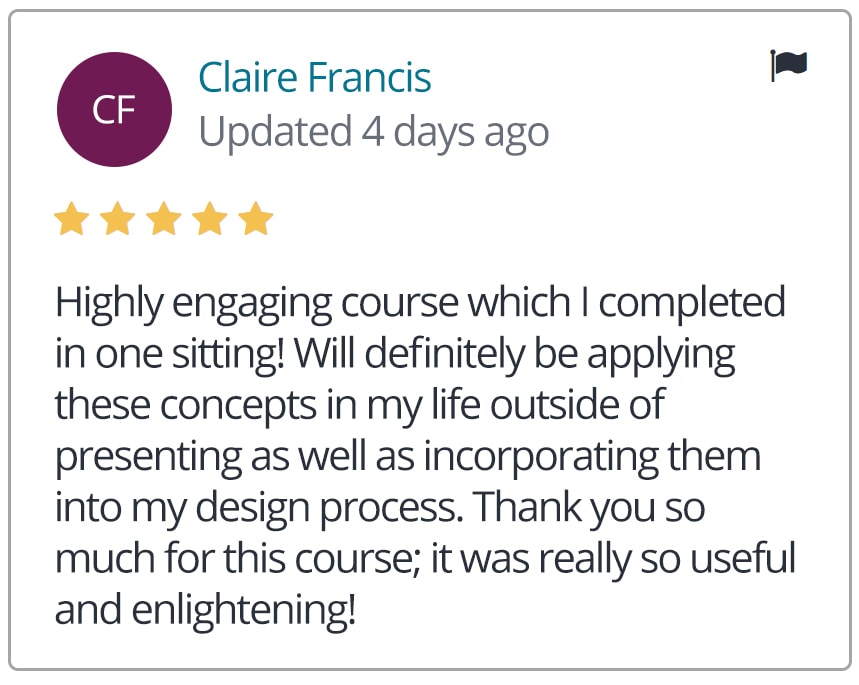
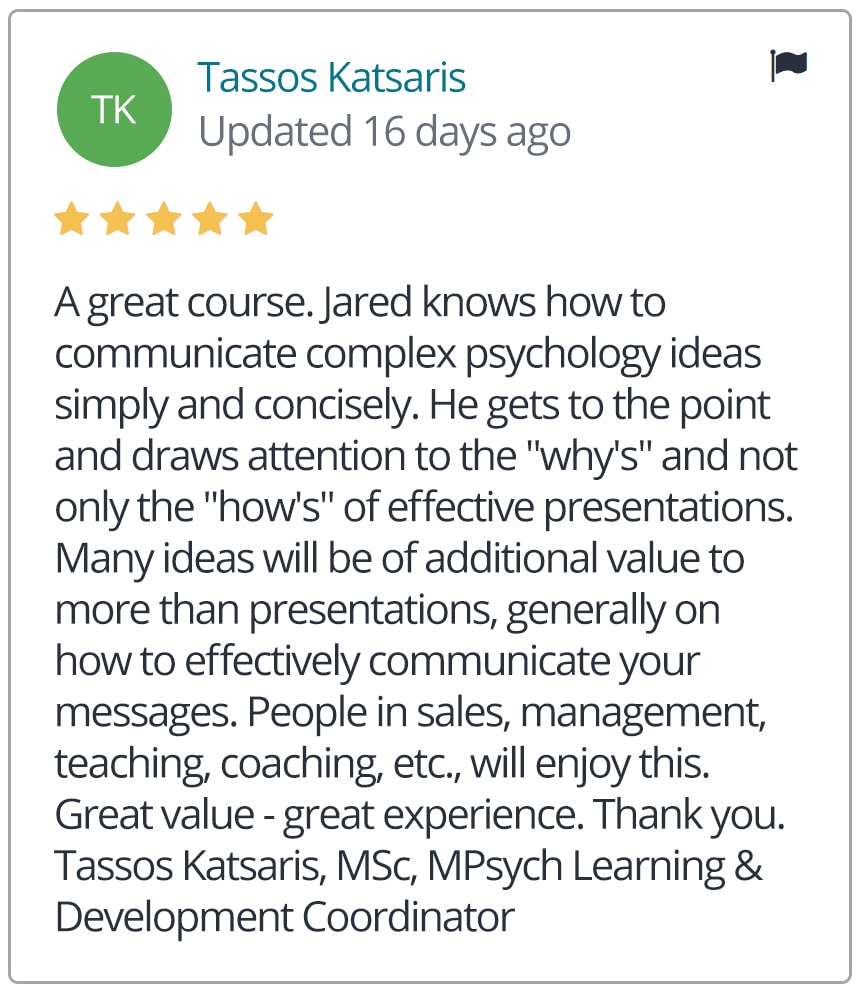
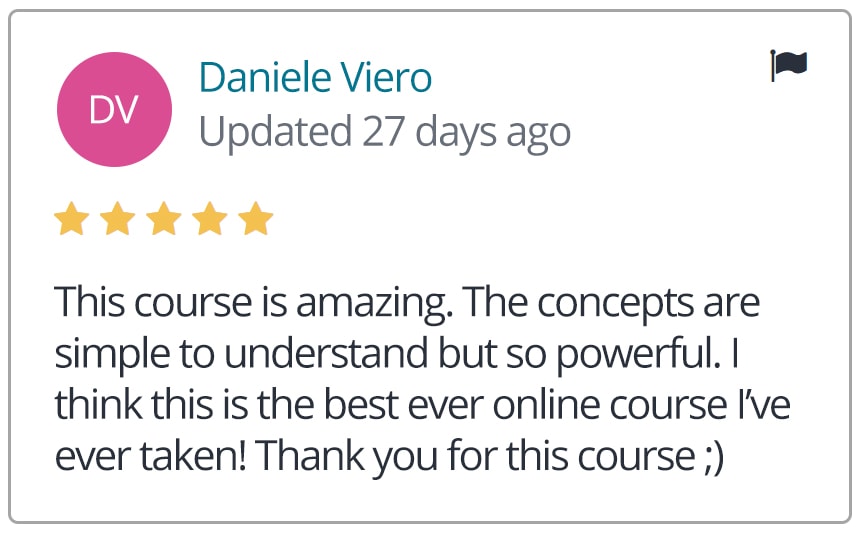
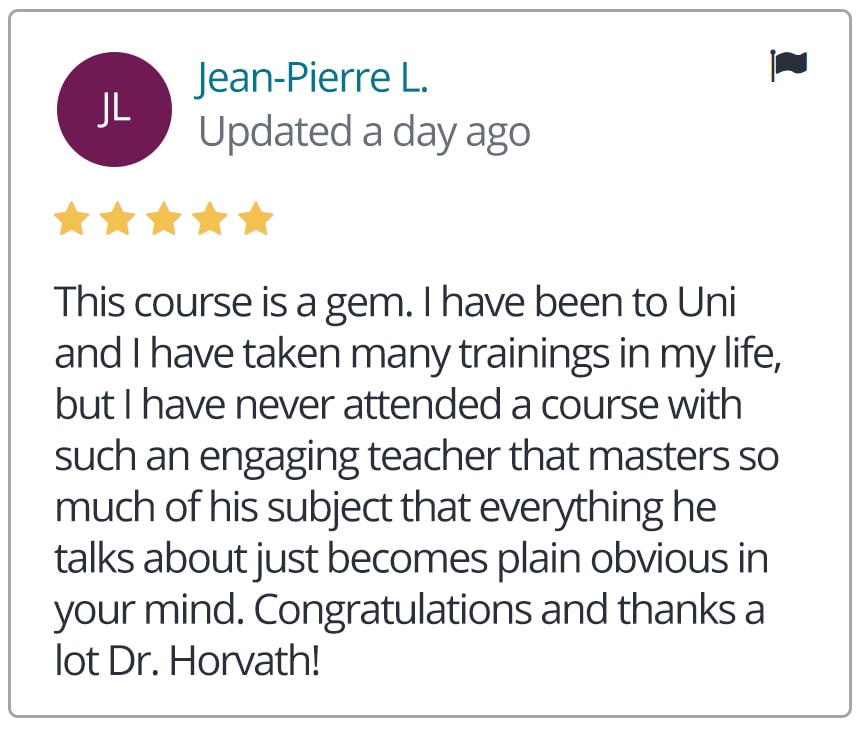
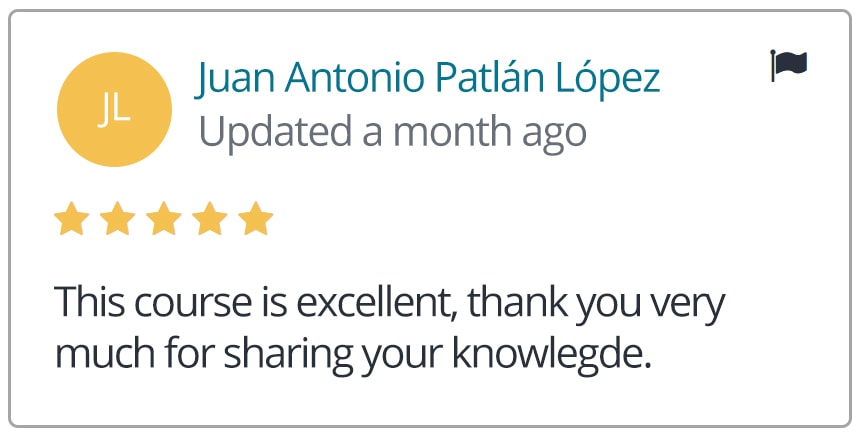
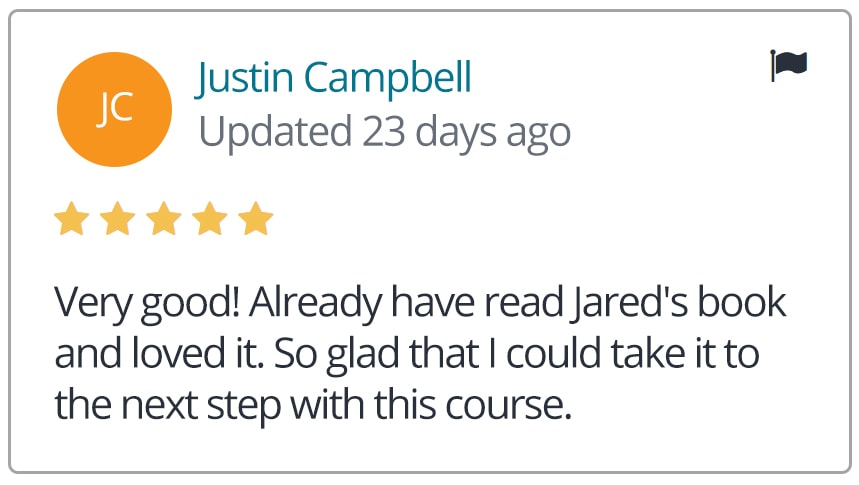
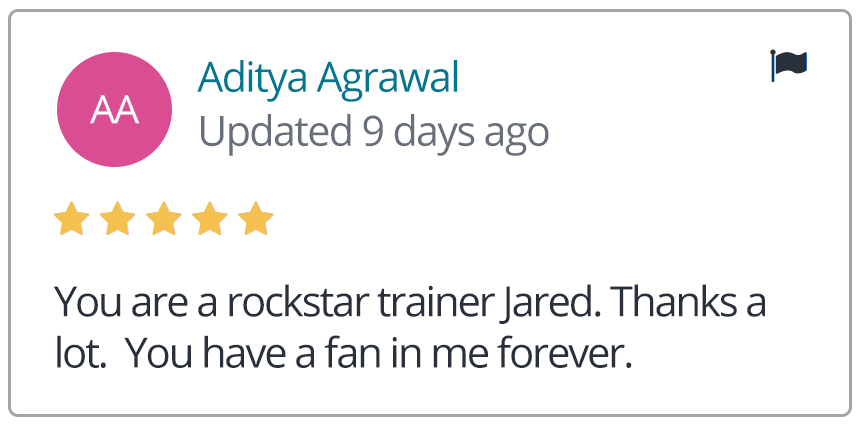

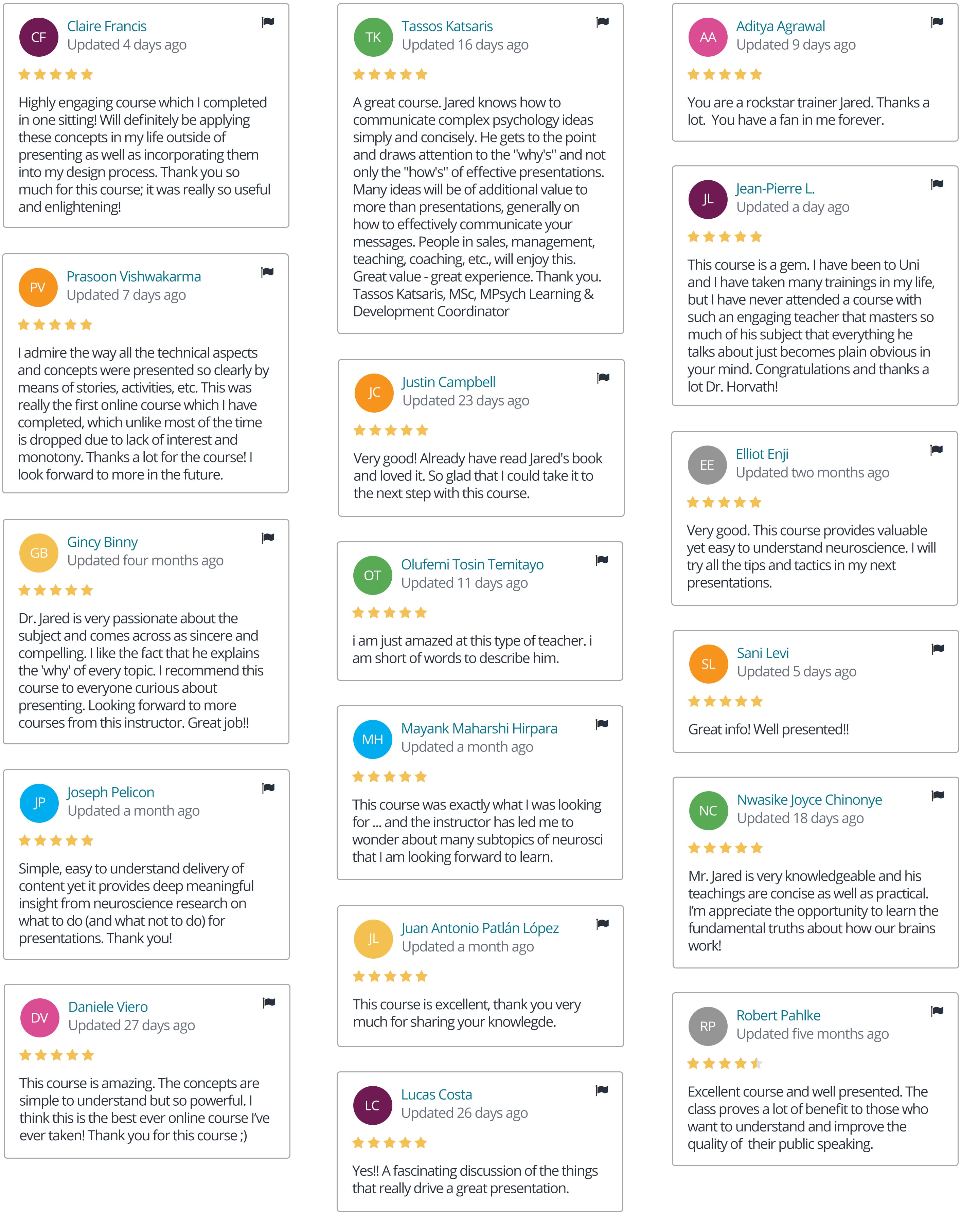

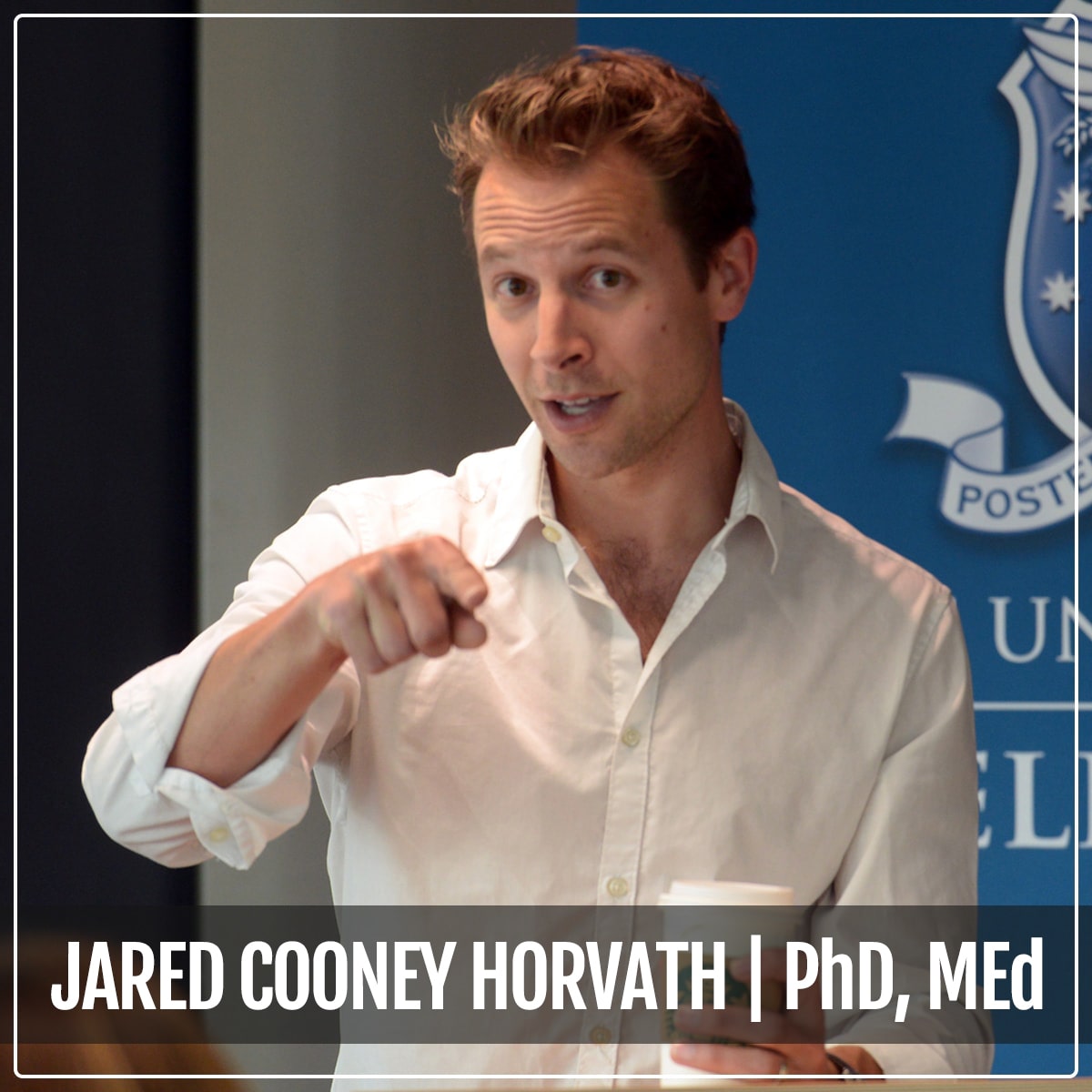
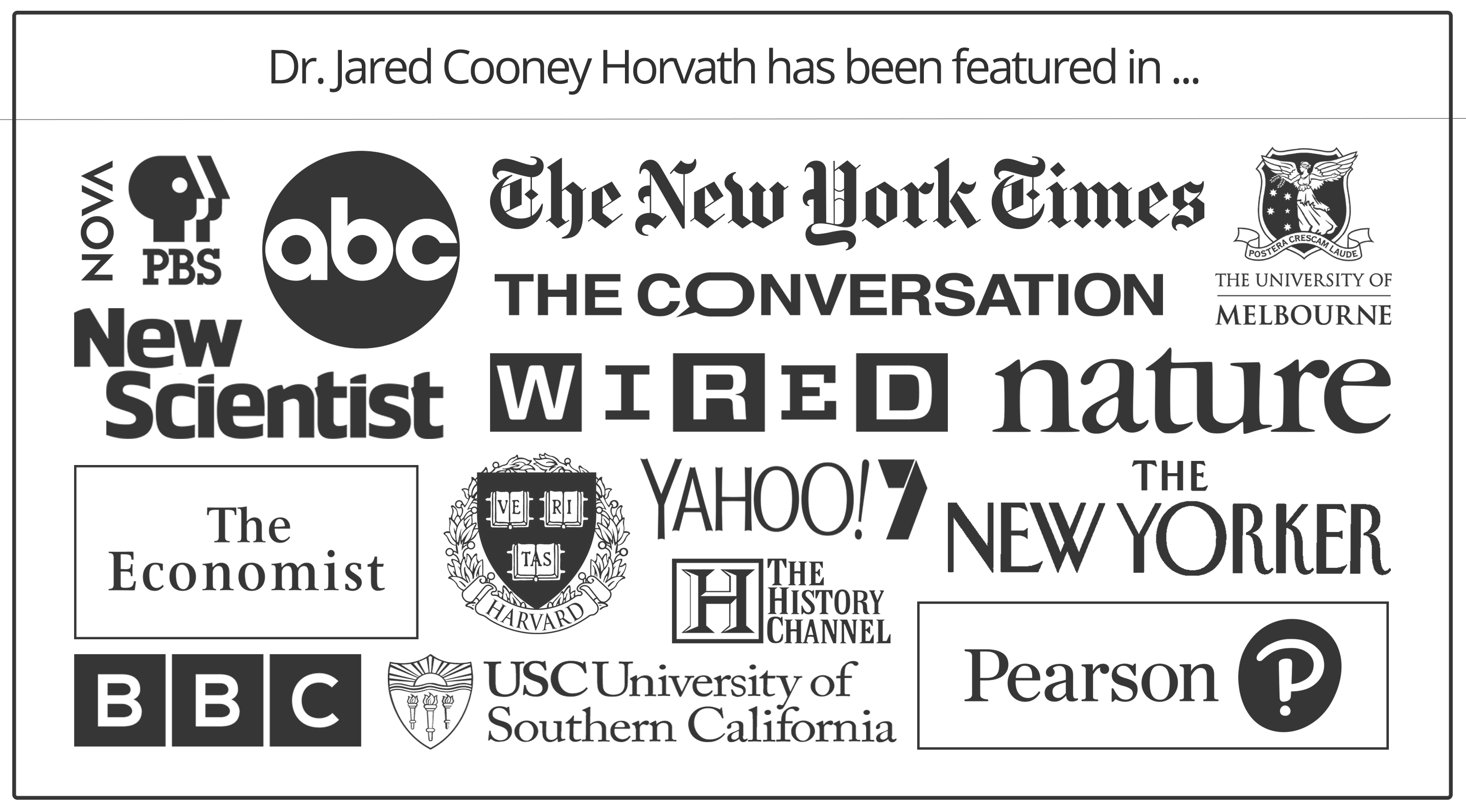
Dr. Jared Cooney Horvath is an award-winning cognitive neuroscientist and best-selling author with expertise in human learning, memory, and brain stimulation. He earned his Master's degree from Harvard University and his Doctorate from the University of Melbourne.
Dr. Horvath has conducted research and lectured at Harvard University, Harvard Medical School, the University of Southern California, the University of Melbourne, and over 100 schools in Asia/Australia. He currently serves as an honorary researcher at the University of Melbourne and St. Vincent's Hospital in Melbourne.
Dr. Horvath has published 5 books, over 30 research articles, and has been awarded the Endeavour Scholarship and numerous awards for scientific presentations. His research has been featured in countless popular publications including The New York Times, PBS, BBC, The Economist, New Scientist and ABC’s Catalyst.
In 2017, Dr. Horvath co-founded his company LME Global to bring his pioneering research to business and academic professionals seeking a competitive edge.


Dr. Jared Cooney Horvath is an award-winning cognitive neuroscientist and best-selling author with expertise in human learning, memory, and brain stimulation. He earned his Master's degree from Harvard University and his Doctorate from the University of Melbourne.
Dr. Horvath has conducted research and lectured at Harvard University, Harvard Medical School, the University of Melbourne, and over 100 schools in Asia/Australia. He currently serves as an honorary researcher at the University of Melbourne and St. Vincent's Hospital in Melbourne.
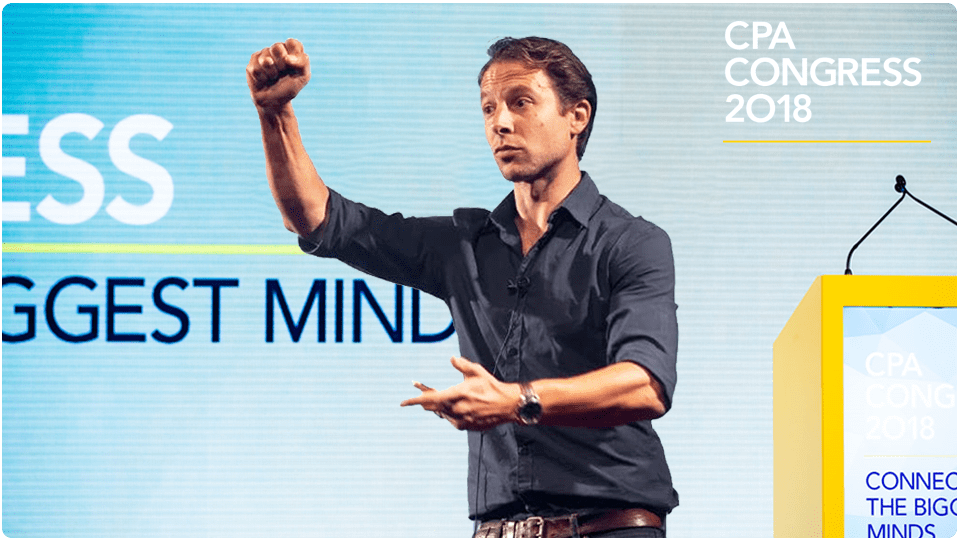
Dr. Horvath has published 5 books, over 30 research articles, and has been awarded the Endeavour Scholarship and numerous awards for scientific presentations. His research has been featured in countless popular publications including The New York Times, PBS, BBC, The Economist, New Scientist and ABC’s Catalyst.
In 2017, Dr. Horvath co-founded his company LME Global to bring his pioneering research to business and academic professionals seeking a competitive edge.


I want to quickly address the one of the most common questions I get asked, which goes something like this: “Jared, how can I be more confident when I present or speak publicly?”.
Now, there are numerous tips and tactics I could give you that would help you combat this issue, but for now I want to offer an idea that’s much more powerful ...
If the thought of presenting or speaking publicly makes you feel uncomfortable, you might feel like you’re in the minority … but you’re not.
No one starts a business or pursues a career because they’re excited about the marketing and self-promotion stuff that comes with it. Nobody looks forward to the act of putting themselves out there and exposing themselves to criticism and rejection ... because it’s simply not built into our neural hardware.
But that doesn’t change that fact that these things are part of your work; that they are part of the formula for success in our new ‘connection economy’ …
And the longer you hide from this fact, the longer you'll be sabotaging your own potential.
It turns out that the most successful professionals and entrepreneurs never actually learn how to overcome the fear of presenting and speaking publicly … but they do learn how to embrace it; how to “dance with it” …
And they do this by changing the story they tell themselves! They do this by switching-out their internal dialogue from something that weakens them, to something that serves and strengthens them.
For whatever reason we've forgotten this concept in our modern culture, but history's greatest philosophers and thought leaders have known this simple (yet powerful) truth for eons:
If you can change your story, you can change your reality!
I won’t go into the neuroscience/psychology behind it here because it’s too difficult to do so in writing (although I do offer a fascinating demonstration of this concept in “The Neuroscience of Presenting” course) ...
But please know that you are in control your internal narrative -- and when you reinforce a narrative of fear and failure, you are building a personal reality that will reflect this narrative.
So, when you ask yourself, “How can I be more confident when I do xyz?”, you are asking the wrong question -- because this question assumes the world is a threat, and that you are inadequate. You are setting yourself up for failure!
Instead, I want you to try the following exercise: the next time you hear the question “How can I be more confident …?” creeping into your brain, I want you to replace it with six simple words …
"How can I be more generous?"
That’s it … “How can I be more generous?”. This seemingly effortless change will force a literal paradigm shift of thinking in your mind -- because this question assumes you have something of value to offer, and that there is an audience who desperately needs it.
I know this idea might seem simplistic or prosaic, but I promise you it’s more powerful than any tip or tactic I could ever offer you. Your brain doesn’t care what story you tell it … but it does need a story to function.
So, if you can remain aware of your internal dialogue, and you can get into the habit of actively replacing negative stories with positive ones, you will progressively free yourself up to confidently focus on the people you seek to serve, and the change you seek to make.
Your mind is the single most powerful tool you will ever have access to … and the way you choose to talk to it will have an immeasurable impact on the results and outcomes you experience.
Just don’t forget that it works equally well in both directions ;)


I want to quickly address the one of the most common questions I get asked, which goes something like this: “Jared, how can I be more confident when I present or speak publicly?”.
Now, there are numerous tips and tactics I could give you that would help you combat this issue, but for now I want to offer an idea that’s much more powerful ...
If the thought of presenting or speaking publicly makes you feel uncomfortable, you might feel like you’re in the minority … but you’re not.
No one starts a business or pursues a career because they’re excited about the marketing and self-promotion stuff that comes with it. Nobody looks forward to the act of putting themselves out there and exposing themselves to criticism and rejection ... because it’s simply not built into our neural hardware.
But that doesn’t change that fact that these things are part of your work; that they are part of the formula for success in our new ‘connection economy’ …
And the longer you hide from this fact, the longer you'll be sabotaging your own potential.
It turns out that the most successful professionals and entrepreneurs never actually learn how to overcome the fear of presenting and speaking publicly … but they do learn how to embrace it; how to “dance with it” …
And they do this by changing the story they tell themselves! They do this by switching-out their internal dialogue from something that weakens them, to something that serves and strengthens them.
For whatever reason we've forgotten this concept in our modern culture, but history's great philosophers and thought leaders have known this simple (yet powerful) truth for eons:
If you can change your story, you can change your reality!
I won’t go into the neuroscience/psychology behind it here because it’s too difficult to do so in writing (although I do offer a fascinating demonstration of this concept in “The Neuroscience of Presenting” course) ...
But please know that you are in control your internal narrative -- and when you reinforce a narrative of fear and failure, you are building a personal reality that will reflect this narrative.
So, when you ask yourself, “How can I be more confident when I do xyz?”, you are asking the wrong question -- because this question assumes the world is a threat, and that you are inadequate. You are setting yourself up for failure!
Instead, I want you to try the following exercise: the next time you hear the question “How can I be more confident …?” creeping into your brain, I want you to replace it with six simple words …
"How can I be more generous?"
That’s it … “How can I be more generous?”. This seemingly effortless change will force a literal paradigm shift of thinking in your mind -- because this question assumes you have something of value to offer, and that there is an audience who desperately needs it.
I know this idea might seem simplistic or prosaic, but I promise you it’s more powerful than any tip or tactic I could ever offer you. Your brain doesn’t care what story you tell it … but it does need a story to function.
So, if you can remain aware of your internal dialogue, and you can get into the habit of actively replacing negative stories with positive ones, you will progressively free yourself up to confidently focus on the people you seek to serve, and the change you seek to make.
Your mind is the single most powerful tool you will ever have access to … and the way you choose to talk to it will have an immeasurable impact on the results and outcomes you experience.
Just don’t forget that it works equally well in both directions ;)








